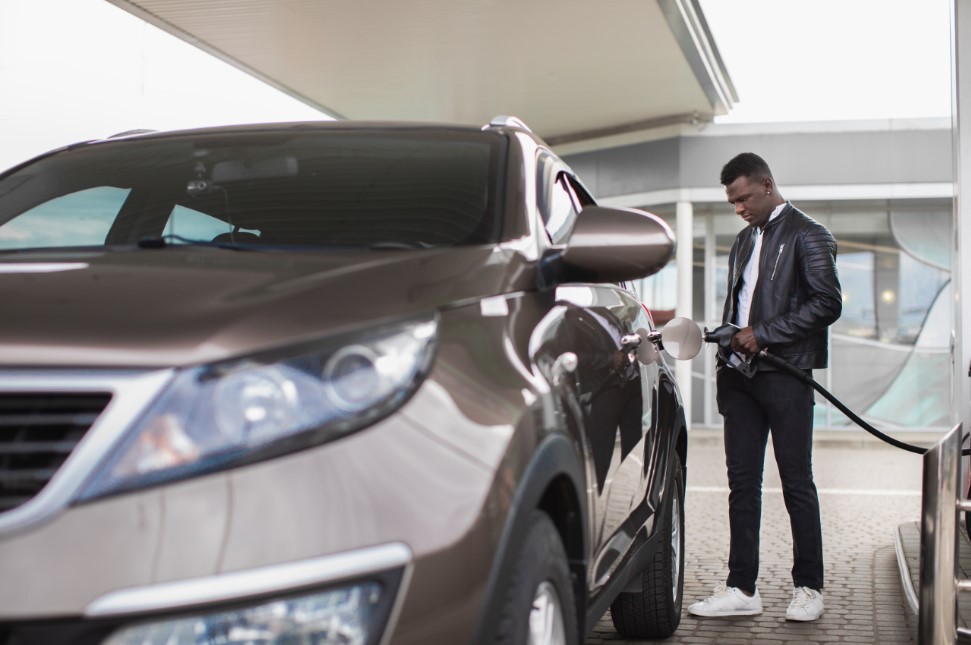Car Won't Start? Identifying & Fixing Car Start Failures

Common Reasons Your Car Won't Start & How to Fix It
There's nothing quite like the sinking feeling that hits when you turn the key, and your car refuses to start. It's a moment of frustration, confusion, and often a dash of panic, especially if you're already running late. We've all been there, and it's not a pleasant experience.
But understanding the basics of your car, like the starter motor, electrical system, and car battery, can go a long way in diagnosing the problem. Knowledge is power, and in this case, it could be the power to get your car started and back on the road. Christian Brothers Automotive is here to explore some common reasons why your car might not be starting and provide some potential solutions to get you back on track.
1. Dead Battery
More often than not, a car won't start due to a dead battery. Your car's battery is responsible for providing the initial jolt of electricity needed to start your engine. Over time, batteries can wear out and lose their charge, especially during extreme weather conditions. Here are some other signs of a dead battery:
Dim or Flickering Lights: If your car's headlights, interior lights, or dashboard lights appear dim or flicker, it could be a sign of a weak battery struggling to provide enough power.
Slow or Sluggish Cranking: When you turn the key in the ignition, listen to the engine cranking. A healthy battery will produce a quick and powerful crank, while a dead or dying battery will result in a slow or sluggish sound when starting the car.
Electrical Malfunction: Your battery also powers your car's electrical systems, so if you notice issues with your radio, power windows, or other electronics, it could be a sign of a weak battery.
Cleaning your battery's corroded terminals, ensuring the cables are on tightly, or even giving things a jump start can often solve the problem. However, if your battery is older or showing signs of wear and tear, it may be time to replace it.
2. Faulty Starter Motor
A faulty starter motor is another common cause of a car not starting. This component engages with the flywheel to create the rotation needed to start the engine. When working properly, it transforms electrical energy into mechanical energy, kick-starting the engine. However, starter motors can wear out over time. Here are some signs of a failing starter motor:
No Noise or a Clicking Sound: If you turn the key and hear silence or just a clicking sound, your starter motor may be to blame. A healthy starter motor would typically emit a whirring sound as it engages with the flywheel.
Engine Cranks Slowly: If your car engine cranks more slowly than usual or doesn't crank completely, this could be a symptom of a failing starter motor.
Intermittent Starting Issues: If your car occasionally struggles to start, it could be a sign of a failing starter motor. This intermittent issue is often followed by complete failure.
If you suspect a starter motor issue, it's best to consult with a professional. They can accurately diagnose the problem and replace the starter motor if necessary, helping your car start smoothly again.
3. Problems with the Electrical System
The electrical system of your car is a complex network, powering everything from your headlights to your ignition system. It's integral for your car's functionality, and issues within this system can easily prevent your car from starting. Here are some of the most common culprits if your car has electrical problems:
Blown Fuses: If certain electrical components in your car aren't working, it could be due to a blown fuse. Fuses protect the car's electrical system by breaking the circuit if there's an excessive flow of electricity. Check the fuse box and replace any blown fuses you find.
Faulty Ignition Switch: If your car's engine doesn't crank or it cranks but doesn't start, there could be an issue with the ignition switch. This switch controls the electricity flow to the starter motor, and if it's faulty, it could prevent the engine from starting.
Damaged Wiring: Over time, the wiring in your car can become worn or damaged, which can disrupt the flow of electricity to various components. If you notice signs of damaged wiring, such as cracked or frayed wires, it's best to consult a professional.
In scenarios where the electrical system is the culprit behind a car not starting, it's advisable to seek assistance from a professional. They can conduct a thorough inspection, identify the root cause, and make the necessary repairs, ensuring you're back on the road in no time.
What to Do If Your Car Suddenly Won't Start
Whether you need to make it through your morning commute or are stranded on the side of the road, a quick fix may be necessary to get your car started. Here are a few simple solutions that could help:
Try Jumpstarting: If your battery is dead, a jumpstart can provide enough power to get your car started. All you need is a set of jumper cables and another vehicle with a functioning battery.
Check Your Fuel Gauge: It may seem obvious, but sometimes the reason your car won't start is that you're out of gas. Check your fuel gauge to ensure you have enough fuel before jumping to more complicated solutions.
Turn Off Accessories: If your car engine cranks but doesn't start, it could be due to accessories like the air conditioning or radio using up too much power. Turn off all non-essential electrical components and try starting your car again.
Even if you're able to get your car to start up again, it's important to investigate the underlying cause before it happens again or damage occurs to any internal components. Bring your car to a local auto shop right away!
Car Won't Start on the First Try? Understanding Crank and Ignition Failures
When your car doesn't start on the first try, it could be a warning of an impending system failure – don't take this as a fluke. Here's what different starting symptoms could indicate:
Rapid Cranking, but the Engine Doesn't Start: This often indicates a fuel or ignition system failure.
Slow Cranking and Failure to Start: If your car cranks slowly, this could be due to issues with the battery, starter motor, or alternator.
No Sound when Turning the Key: This could indicate a problem with the starter motor or electrical system.
Whatever the issue may be, it's always best to address any starting problems as soon as possible. Ignoring them could lead to further damage and costly repairs in the future.
When in Doubt, Contact Christian Brothers Automotive
Car won't start? Let Christian Brothers Automotive help. Our skilled technicians pride themselves on transparent, honest auto repair with exceptional service. We'll diagnose issues quickly – whether it's a dead battery, faulty starter, or electrical problem. We offer a range of auto services, courtesy inspections, and shuttle service to provide a Nice Difference that cannot be found anywhere else!
Find your closest Christian Brothers Automotive location and schedule an appointment today!

[1].jpg)
Sunwash-Tech-with-Customer.jpg)

